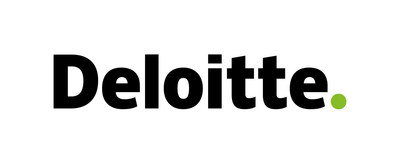After decades of relying primarily on medical care to improve population health globally, new research from Deloitte describes promising examples that portend a shift towards a community-based approach that will improve population health, prevention, and well-being.
|
BOSTON, June 6, 2019 /PRNewswire/ -- After decades of relying primarily on medical care to improve population health globally, new research from Deloitte describes promising examples that portend a shift towards a community-based approach that will improve population health, prevention, and well-being.
The Deloitte Center for Health Solutions and the Deloitte Center for Government Insights interviewed more than a dozen innovators that are using new approaches to engage people through communities – both virtual and geographic. The research found that harnessing the power of social networks and technology can enable smart health communities (SHCs) to empower individuals to manage their own health. The new findings are revealed in the Deloitte report titled: Smart Health Communities and the Future of Health. "We are learning more and more about how important social connection, social determinants, and people's environment can be in influencing how healthy and well they are," said Sarah Thomas, managing director, Deloitte Services, and Center For Health Solutions. "There is huge potential to address opportunities in these areas, sometimes through technology – which can reduce the cost and create the data we need to find opportunities – but also through behavioral economics and design elements." What is a smart health community? While the fundamentals of SHCs are not new, technological advances combined with new understandings of health behavioral change are helping enable next-generation SHCs that are much more sophisticated, interconnected and influential. These advanced SHCs are typically characterized by five key elements:
"If you put all of the elements of smart health communities together you will see a dramatic impact on how people approach their health and wellbeing going forward," said Thomas. "The future of health care will blur traditional boundaries, with SHCs becoming more integrated into our daily lives." Forces driving adoption The ubiquitous adoption of the internet and mobile technologies has caused individuals to participate in powerful virtual communities, including social media networks. These advances have enabled SHCs to scale while also becoming more personalized. At the same time, data shared by members, including genetic and medical data, are helping detect and prevent disease at an individual level as well as assist in disease surveillance of population health. Stakeholders in new SHC ecosystems On the private side, health systems, care givers, life sciences companies, and players like technology companies and retailers could participate in SHCs as part of their digital and consumer engagement strategies. "All stakeholders in health care – including governments, health plans, providers, life sciences companies and new entrants – can learn and build from the SHC concept," added Thomas. "These ecosystems can measure success by their ability to establish consumer loyalty, improve wellness behaviors, increase access and reduce costs." To read all the findings from the Smart Health Communities and the Future of Health report, please visit Deloitte Insights. About Deloitte Deloitte refers to one or more of Deloitte Touche Tohmatsu Limited, a UK private company limited by guarantee ("DTTL"), its network of member firms, and their related entities. DTTL and each of its member firms are legally separate and independent entities. DTTL (also referred to as "Deloitte Global") does not provide services to clients. In the United States, Deloitte refers to one or more of the US member firms of DTTL, their related entities that operate using the "Deloitte" name in the United States and their respective affiliates. Certain services may not be available to attest clients under the rules and regulations of public accounting. Please see www.deloitte.com/about to learn more about our global network of member firms.
SOURCE Deloitte |





